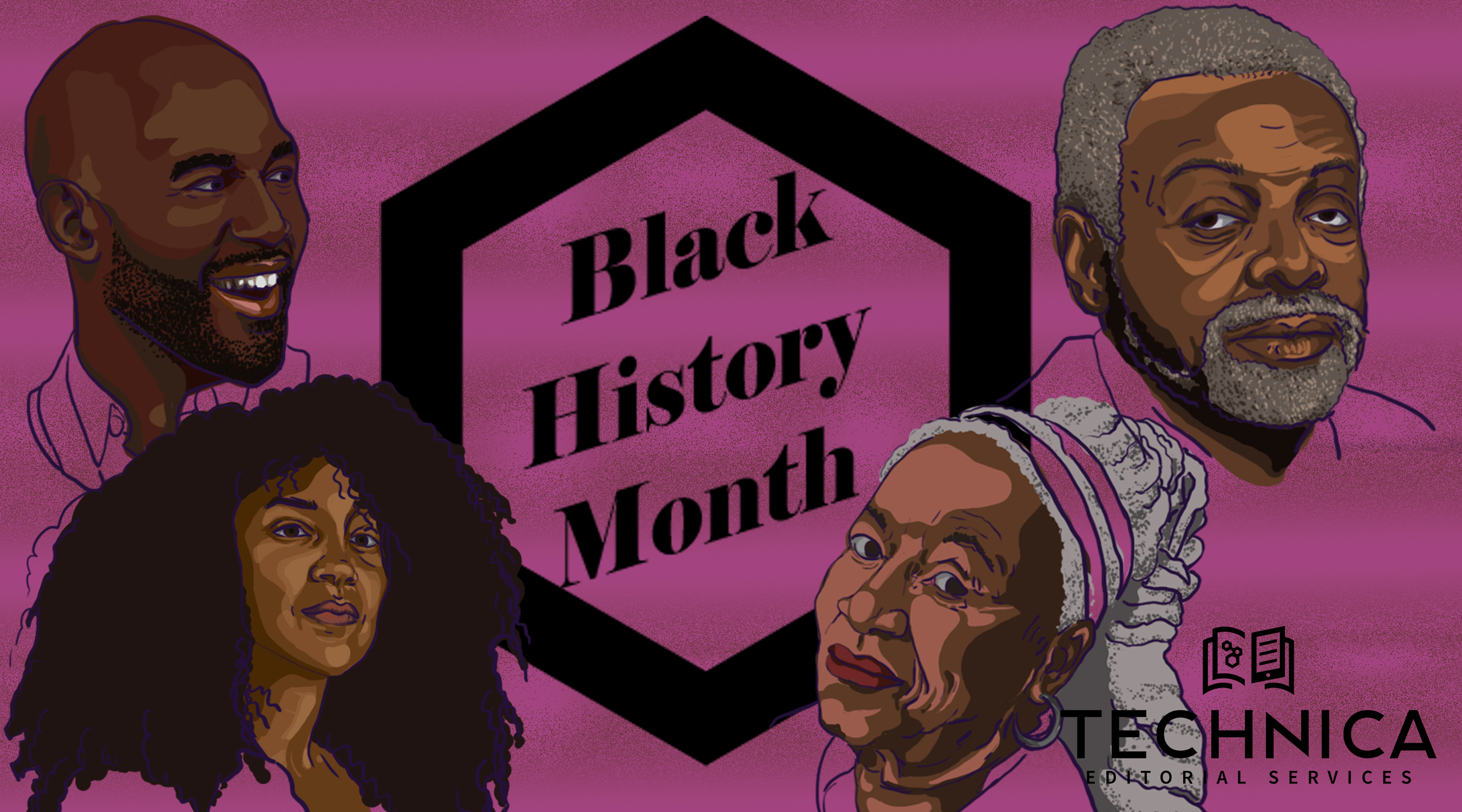[Left to right: Karamo Brown, Elizabeth Acevedo, Toni Morrison, Amiri Baraka; image created by Hayley Nestor]
In honor of Black History month, Technica Editorial recognizes Black writers who have left an indelible impact on American art, culture, and literature. Here are just a few men and women who helped (and continue to) pave the way in writing, civil rights activism, and shaping American culture.
- Zora Neale Hurston (1891-1960):
- Hurston’s resume is as varied and long as her list of publications – everything from reviews to plays to full-length literary nonfiction. One of her most celebrated novels, Barracoon: The Story of the Last Black Cargo, tells the firsthand account of a survivor of the Atlantic Slave Trade from his captivity to his life post-emancipation. Hurston wrote Their Eyes Were Watching God in an impressive seven weeks with the support of a Guggenheim fellowship. Despite her many accolades, Hurston was buried in an unmarked grave that was identified 13 years later by Alice Walker.
- James Baldwin (1924-1987):
- The stepson of a preacher, Baldwin was well on his way to joining the seminary but decided otherwise after recognizing his own sexuality and the discrimination set against Black gay and bisexual men. He spent most of his adult life in France as an activist and advocate, joining the Congress of Racial Equity and the Student Nonviolent Coordination Committee. Baldwin’s influence has resurfaced with the film adaptation of If Beale Street Could Talk earning three nominations at this year’s Academy Awards.
- Toni Morrison (1931-):
- Currently a chair at Princeton University (a position she has held since 1989), Toni Morrison (born Chloe Anthony Wofford) was the recipient of the American Book Award and a Pulitzer Prize in 1988 and went on to win the Nobel Prize in Literature in 1993. Her novels, which include Beloved, Song of Solomon, and The Bluest Eye, have all been a staple of 20th century literature, particularly for young women of color.
- Langston Hughes (1902-1967):
- Widely regarded as an innovator of jazz poetry and the poet laureate of the Harlem Renaissance, Hughes’ plays and poems are still being taught in primary schools and higher education today. After leaving Columbia University due to overwhelming prejudice from his mentors and peers, his career was smattered with accolades and controversy. Notably, his friendship with Zora Neale Hurston fell apart after a dispute over the authorship of Mule Bone, a play written in 1930 that would not see the stage for another 61 years.
- Alice Walker (1944):
- Best known for writing The Color Purple, Walker received both the Pulitzer Prize in Fiction and the National Book Award in 1983. As an activist for the Black community, Walker’s writing touches on feminist issues and topics including female genital mutilation. Walker was recently the subject of controversy for comments she made regarding David Icke’s And the Truth Shall Set You Free, a novel widely criticized for its potential anti-Semitic themes.





